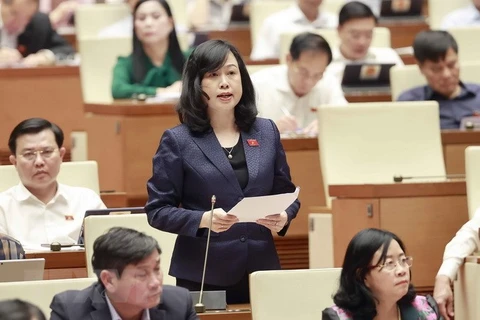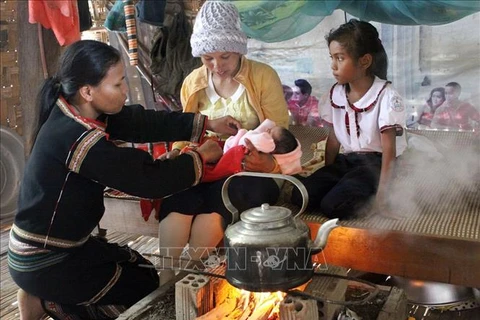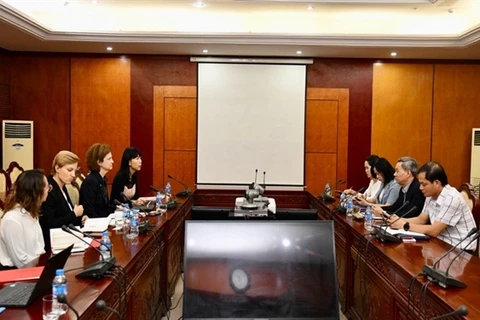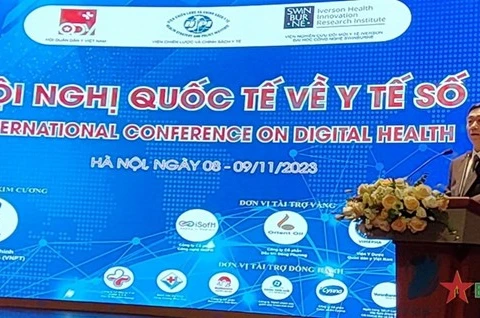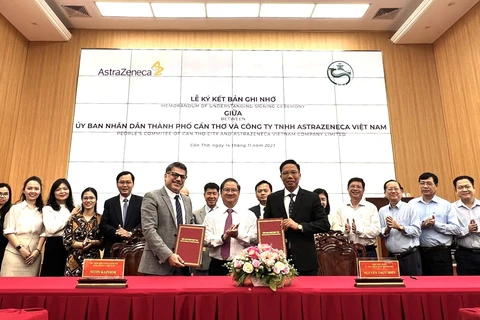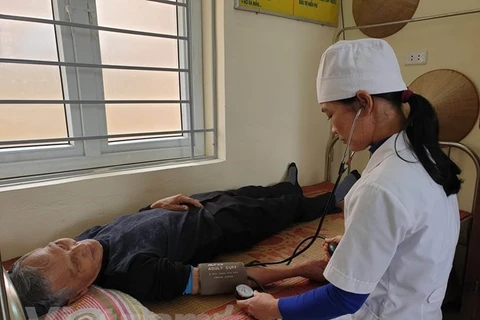Hanoi (VNA) – More than 110 million USD will be spent on developing a grassroots healthcare network in disadvantaged areas in Vietnam, the Ministry of Health announced at the conference to launch Phase I of the healthcare development programme on December 5.
Speaking at the event, Minister of Health Dao Hong Lan emphasised the important role of the grassroots healthcare network in protecting and improving people's health.
The Party, the State and the Government of Vietnam always give top priority to healthcare.
Globally, the World Health Organisation (WHO) recommends that primary healthcare is a smart choice to help health systems reach the goal of universal healthcare coverage, Lan said.
In Vietnam, the grassroots healthcare network still grapples with numerous challenges. Its organisational structure is unstable, and it lacks the capacity to deliver healthcare services effectively, especially during emergencies like disease outbreaks. The quality of services provided remains subpar, and there are deficiencies in terms of investment resources, physical infrastructure, equipment, medications, and medical supplies.
Moreover, the policies and remuneration for healthcare personnel are insufficient, making it difficult to attract highly qualified medical professionals committed to long-term service in grassroots healthcare. Disease prevention, health promotion, population health management, early disease detection, and disease control efforts still face limitations. A lack of public trust in service quality leads to patients bypassing lower-level facilities, causing an overwhelming burden on higher-level hospitals.
The programme focuses on upgrading facilities and developing a grassroots healthcare network in disadvantaged areas to 2025, funded by the Asian Development Bank (ADB) and the Vietnamese Government. It also includes providing medical equipment, improving human resources, innovation of medical service delivery models and financial mechanisms for grassroots healthcare in 16 provinces that face socioeconomic difficulties.
The programme is important for the health sector to gradually improve the capacity of the grassroots healthcare network in the new situation, particularly when the State’s budget cannot meet all financial needs of the project.
According to the management board, the programme is planned to be implemented in 16 provinces across Vietnam including Tuyen Quang, Bac Giang, Phu Tho, Dien Bien, Lai Chau, Nghe An, Ha Tinh, Quang Nam, Phu Yen, Binh Thuan, Kon Tum, Gia Lai, Dak Nong, Binh Phuoc, Soc Trang, Ca Mau.
Besides the large implementation scale, it has a huge investment of 110.6 million USD including 88.6 million USD in loan capital, 12 million USD in non-refundable aid capital and 10 million USD in counterpart capital.
 Phan Le Thu Hang, Deputy Director of the Department of Financial Planning and Director of the Project Management Board for Construction Investment and Development of the grassroots health system. (Photo: VietnamPlus)
Phan Le Thu Hang, Deputy Director of the Department of Financial Planning and Director of the Project Management Board for Construction Investment and Development of the grassroots health system. (Photo: VietnamPlus) The programme has a management mechanism that is quite different from other programmes and projects in the health sector.
Firstly, it gives localities maximum autonomy as the localities are the investors of components that use loan capital. Secondly, the programme’s disbursement mechanism is in line with the disbursement of the State budget within the framework of the national target programme on new-style rural area development.
The loan agreement that governs the programme took effect on February 4, 2020, and has been extended three times so far due to difficulties in completing all necessary legal procedures.
The programme has now officially entered the operational implementation phase after the National Assembly and the Prime Minister approved to add it to the list of medium-term public investments in the 2021-2025 period./.

